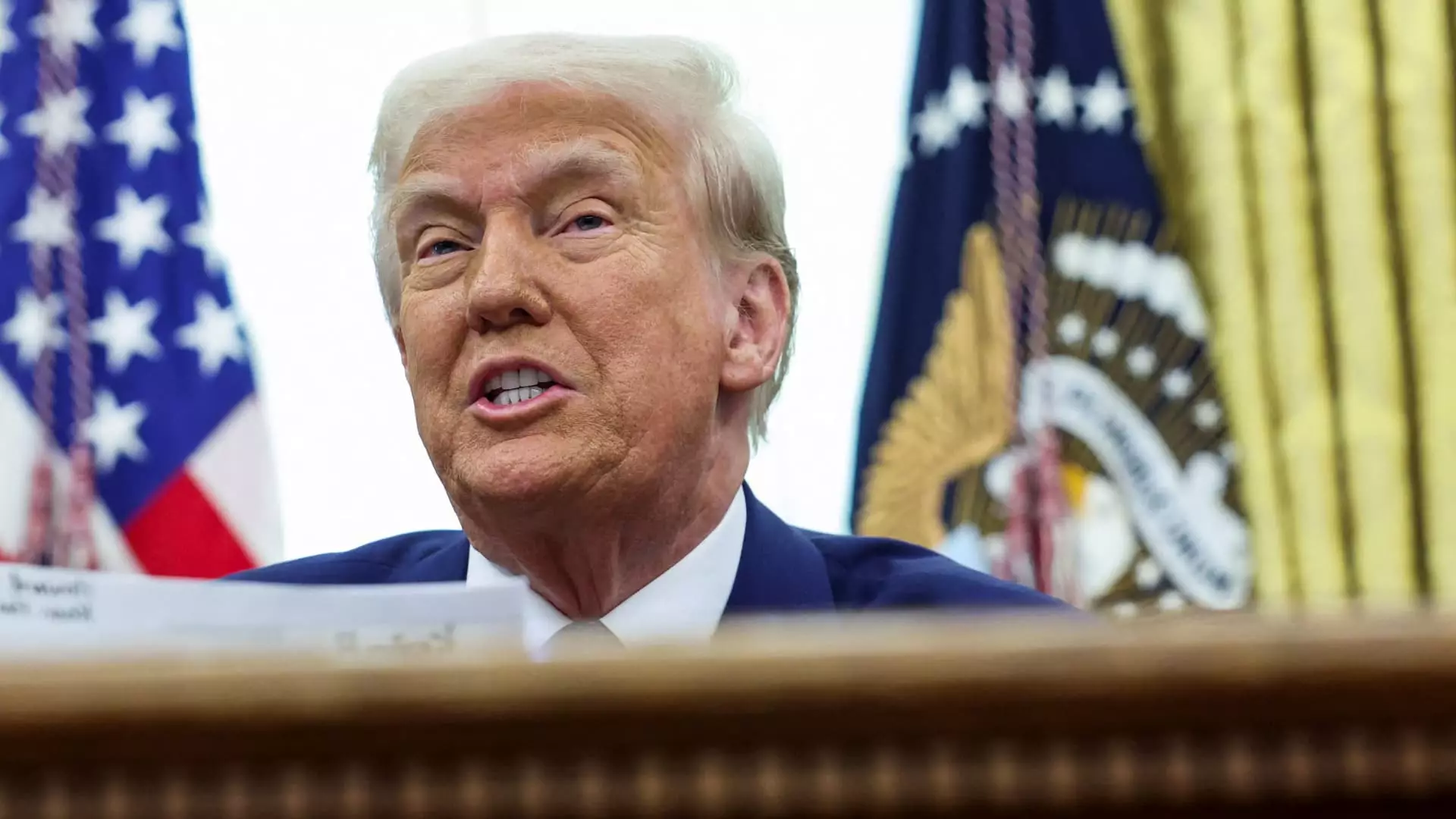In a surprising turn of events, defense stocks experienced a significant decline on Thursday afternoon after former President Donald Trump implied the possibility of substantial cuts to United States defense spending. According to reports from Reuters, Trump speculated about potentially reducing defense expenditure by as much as fifty percent, a notion that sent tremors through the financial markets. This announcement came amid talks of convening a conference on defense finances alongside major global players like China and Russia. Major defense contractors like Lockheed Martin saw their shares decrease by 1.5%, while Northrop Grumman and General Dynamics faced steeper declines of 2.6% each. Such rapid shifts in stock prices highlight the volatility associated with defense sector investments, especially in light of political discourse.
Trump’s approach to military spending during his 2024 campaign has been notably inconsistent, leaving investors and analysts puzzled. Throughout his political tenure, he has oscillated between advocating for a robust military presence and proposing budget cuts. On one side, Trump has sought to implement financial efficiencies through innovative approaches, such as enlisting high-profile figures like Elon Musk and establishing a Department of Government Efficiency aimed at identifying unnecessary expenses across government operations. Moreover, his advocacy for a speedy resolution to the ongoing conflict in Ukraine suggests a demand for continued military supplies, which in turn bolsters the defense industry.
Conversely, Trump has also emphasized the critical need for a formidable military, going so far as to sign an executive order directing efforts toward developing a domestic missile defense initiative reminiscent of Israel’s Iron Dome. This contradictory stance creates a climate of uncertainty that is not lost on defense analysts. Roman Schweizer, a policy analyst at TD Cowen, captured this sentiment perfectly when he remarked on the confusion resulting from Trump’s conflicting messages regarding defense budget priorities.
The implications of Trump’s comments extend beyond fluctuating stock prices; they bring to the forefront broader concerns regarding U.S. national security and its global military commitments. A potential halving of defense spending could undermine military readiness, impacting both active operations and future engagements. The defense industry, already grappling with the dynamics of international relations and procurement strategies, now faces the daunting challenge of adapting to a potentially drastically reduced budget.
With global threats evolving rapidly, any significant reduction in U.S. military expenditures could embolden adversaries and alter the balance of power. This situation necessitates a comprehensive reevaluation of domestic defense policy, strategic priorities, and investment in military capabilities. As the political landscape continues to shift, stakeholders within the defense sector will closely monitor developments to navigate the uncertain terrain ahead.
While Trump’s assertion may reflect a specific ideology regarding fiscal conservatism, the ramifications on both market performance and national security are complex and far-reaching. The balance between fiscal responsibility and military strength remains a pivotal issue that demands careful consideration as the political discourse unfolds.

